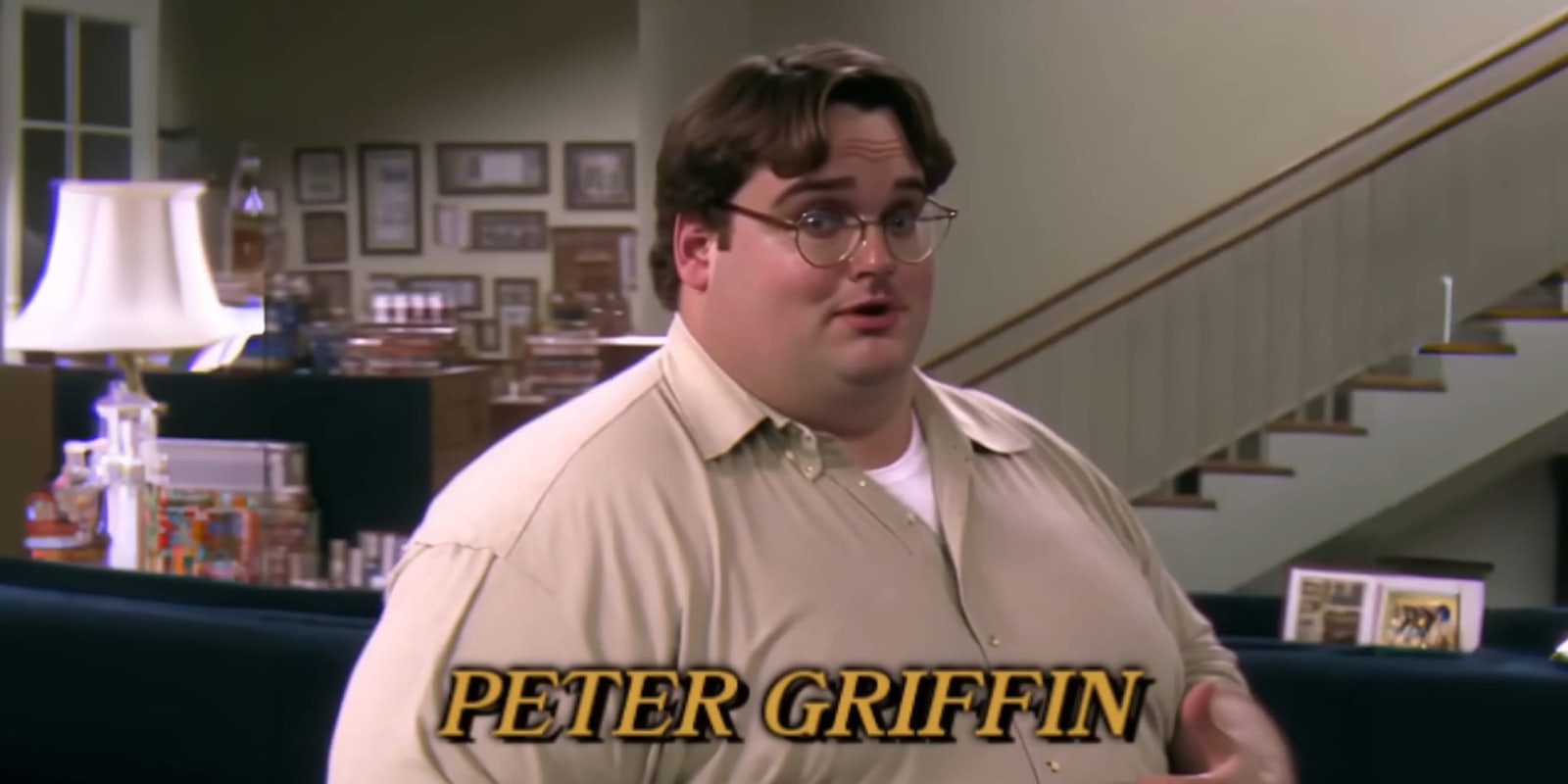Over the last month, a new kind of uncanny content has been flooding YouTube: Intros to animated series and TV shows recreated with AI-produced images, made to look like they came from another decade.
There’s Family Guy, The Simpsons, Bob’s Burgers, Adventure Time, Futurama, South Park, and Beavis and Butt-Head. These are just a handful of examples from the last month, but they all have the same waking-nightmare feel to them, likely because a majority were made in Midjourney. I didn’t search for any of these videos, but around late January, YouTube started recommending them, and wouldn’t stop. Most recently, it thought I would like “The Joe Rogan Experience as a 90’s Sitcom.”
Three weeks ago, YouTuber Lyrical Realms posted a surreal Family Guy intro, which has more than 5 million views. It features just stills, presented as a slideshow, showing the main characters from the animated show as live-action renderings. But once you zoom in on the teeth and hands, it looks a little less “human,” and the characters don’t feel like they’d be pleasant to actually watch. (Largely because there is no dialogue or plot.)
One of the comments on the clip: “mind blowing. you could convince somebody who didn’t know about family guy that this was a real sitcom.”
Lyrical Realms told the Daily Dot that they were inspired by “the recent surge in popularity of ‘80s sci-fi movies.
“I have a background in machine learning and a love for AI, so this was a natural fit for me. The process was quite long, taking me five full days to generate between 1,000 to 1,500 images. The most challenging part was the prompt engineering and having to discard many images during the process until I found the perfect prompts.”
YouTuber Suburban Garden says they saw a video titled “Dark Souls as an 80’s Dark Fantasy Film” in early January and got inspired to try one out: “I got the free trial for Adobe premiere and stayed up until six in the morning trying to release my video before someone else took the idea.”
After publishing a Futurama intro that got more than 900,000 views in two weeks, they say their “channel of only 10 subscribers quickly rose to 1,000 in three days.” It currently has more than 5,000 subscribers.
Last month, writer Ryan Broderick pondered “how long it’ll take for YouTube to start trying to downrank this stuff algorithmically.” But it seems these kinds of videos are only proliferating, and some of them are getting millions of views; YouTube doesn’t have much incentive to stop it. We reached out for comment.
Creator demonflyingfox, who did a South Park intro that got more than 1 million views, tells the Daily Dot these kinds of videos are popular right now “within the AI hype,” because the AI can produce “those sitcom (or dark fantasy) images quite convincingly. Also people realized you can get potentially millions of views in a matter of days.”
They add that this could potentially “give future filmmakers the possibility to be not tied to budgets or the will of the production company.”
That kind of thinking was echoed, to a much loftier degree, by the creators of Twitch stream “Nothing, Forever.” Since December, ChatGPT, an AI chat bot, has been producing dialogue for an infinite episode of Seinfeld, and thousands of people have tuned in daily. The “characters” apparently asked some big questions, and people mostly seemed to be having fun engaging with it.
In an interview with Vice last week, one of its creators explained that their “grounding principle was, can we create a show that can generate entertaining content forever? Because that’s truly where we see the future emerging towards. Our goal with the next iterations or next shows that we release is to actually trade a show that is like Netflix-level quality.”
That generated some criticism from people who thought this was just a weird internet project, not something that would eventually replace streaming content and its creators. A few days later, “Nothing, Forever” was banned from Twitch for two weeks, after the Jerry Seinfeld character “Larry Feinberg” did a transphobic standup bit. One of the creators blamed a switch to a “less sophisticated” AI model after the original experienced an outage, which allegedly caused the “inappropriate text.”
The YouTube intro trend is just part of the surge of AI-generated art (and anti-AI art), which has started necessary discourse about ownership, bias, and consent. Last week, a sexist AI porn tweet became a meme, while deepfake porn created of two popular Twitch streamers triggered a rudimentary apology from another streamer (and, eventually, the person who created it), as well as a flood of misogynistic tweets.
There will be a bigger conversation about AI as it applies to streaming and entertainment, and it will be interesting to see if the actual creators of any of these shows have something to say. There are already a few jokes about YouTube creating an AI generator to cash in on this trend, though that could become reality soon. That is, if this trend doesn’t exhaust itself in a few weeks.



